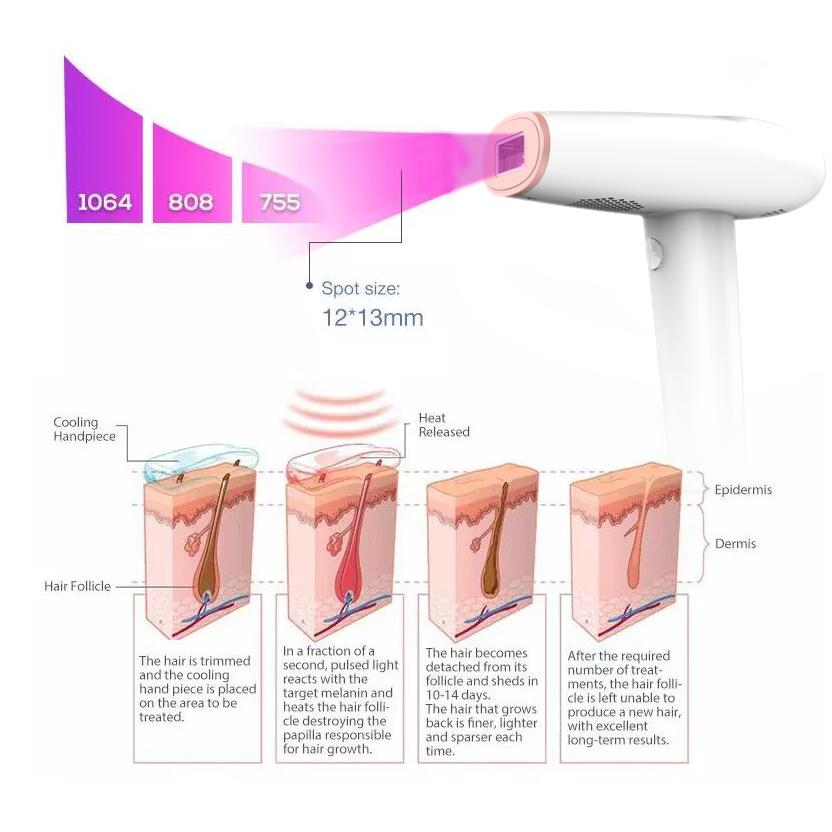
Pregnancy is a beautiful time; a time during which a woman’s body undergoes many changes. Some of these changes are welcome – such as stronger nails and ‘glowing’ skin – and some of these changes are not so welcome.
“Old fashioned” ways of removing unwanted hair – tweezing, shaving, waxing, and threading – work as effectively during pregnancy as they do when you’re not pregnant, and they’re safe for you and your baby. But they can cause some darkening of the skin during pregnancy when the skin becomes inflamed. (This darkening usually fades in the months that follow.)
Increased Facial or Body Hair: Is It Normal During Pregnancy?
As mentioned earlier, you may notice a sudden increase in your body or facial hair growth at different stage of your motherhood journey due to the hormonal changes. We know how much annoying this can be, especially to a mom that has conceived for the first time. But, the fact is- it’s completely normal to experience excess body and facial hair during pregnancy due to hormonal fluctuations.
It is common for pregnant women to experience excess hair growth in unwanted areas, and to understandably want it removed. Although the pain of waxing might not be something you’d jump at while enduring some of the other aches and pains associated with pregnancy, at MySkin Laser we do recommend waiting until you have finished breastfeeding to start or re-commence Laser Hair Removal treatments.
Feeling bad? FYI, these are just temporary changes that happen to pregnant women and will not last long. All these changes will be gone once your baby is born and your body gets back to the usual state of hormone levels. Until then, here is how you to deal with the excess body and facial hair in the following;
How Laser Hair Removal Works
Laser Hair Removal targets hair follicles in areas where hair growth is unwanted. During treatment, an intense pulse light is focused on the follicle in order to incur damage that will prevent future hair growth.
In the rare event that a patient experiences an uncomfortable amount of pain during Laser Hair Removal, our laser technicians will apply numbing agents to the affected areas. These medications do travel through the skin to the blood supply, and could potentially contaminate breast milk.
Although Laser Hair Removal is not a dangerous procedure and the application of pulse lasers has not been shown to affect more than the top layers of skin, our Carlany technicians do not like to take chances with the well-being of clients. If you are pregnant or breastfeeding, we recommend putting your Laser Hair Removal treatments on hold.
Will Laser Hair Removal Affect My Baby?
While there is no link connecting Laser Hair Removal to negative effects on pregnant or lactating women, there is likewise no evidence to guarantee it is a safe treatment method during this time.
This vital lack of information regarding the effects of Laser Hair Removal on the fetus should beget caution. Because we cannot guarantee your total safety – nor that of your child – we will not perform Laser Hair Removal while you are pregnant or breastfeeding.
If you are troubled by excess hair growth during pregnancy, we recommend more temporary hair removal solutions such as waxing and shaving. Once you have given birth and finished breastfeeding, we are happy to re-commence your Laser Hair Removal sessions where we left off.

While there is no link connecting Laser Hair Removal to negative effects on pregnant or lactating women, there is likewise no evidence to guarantee it is a safe treatment method during this time.
In the scheme of things, pregnancy doesn’t last for long. This time – with all its associated bodily changes – should be enjoyed as much as possible while it lasts.
Laser Hair Removal can wait until after pregnancy. We recommend waiting until after you finish breastfeeding to worry about excess hair, as we cannot guarantee Laser Hair Removal will be an entirely safe removal method.
However, it is your body – if you would like to rid yourself of excess hair during this time, more temporary hair removal methods such as shaving and waxing are both viable options.
